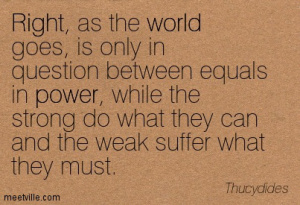Most of the people want to lead a happy and prosperous life. We can increase our wealth in two ways.
- Creation of New Wealth (Many entrepreneurs claim that they do it, surely some do it)
- Gather/Extract the wealth from others (From the petty thieves to the many mighty rich do it)
When the first one is normal, second one is problematic. Joseph E Stiglitz introduces this word rent-seeking with regard to the second case in his book ‘The price of Inequality’ and I thought I could write about it a little. In simple terms, it is the art by which the might 1% of the population are benefited at the cost of the majority 99%. It is a way by which benefits are given to sections of the society (subsidies, loans, lands at cheaper rates, other incentives), that they are given undue advantage and this helps them to maintain their monopoly in the market. It is the remuneration given  to a party beyond his or her contributions.
to a party beyond his or her contributions.
The reservations for the poor and the marginalized class in many countries, loan waivers to poor farmers wouldn’t form part of the rent seeking. They are opportunities to create fairness according to the principal of John Rawls. But the rich among the tribals and dalits in India, who gather the benefits of reservation are doing rent-seeking, not allowing the poor to get those benefits and prosper on the basis of the undue advantage given to them.
In India, we have the examples of farmers committing suicide due to the crop-failures and non-payment of loans and government at times don’t do enough for them. But the rich gets loans with negligible/lower interest or some industrialists get land at low rates. Another article states that the loan of a single investor is almost equal to the entire farmers debt.
The arguments of free trade where market is equal for all is a myth, as rent-seeking and other advantages are already written in a subtle way in the government’s policies. The governments of each country (along with India, many others have this same widening gap of the super-rich and the poor) should take proactive steps that is not bowing to the demands of the rich, but protecting the interests of the poor so that an overall, inclusive development is possible. 
Advertisements Share this:





